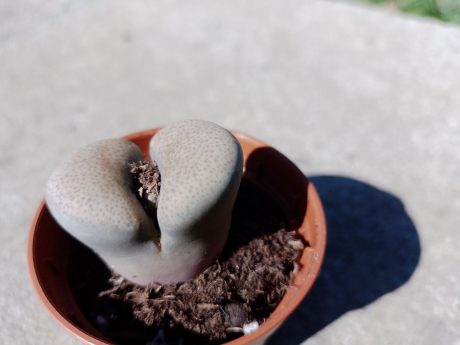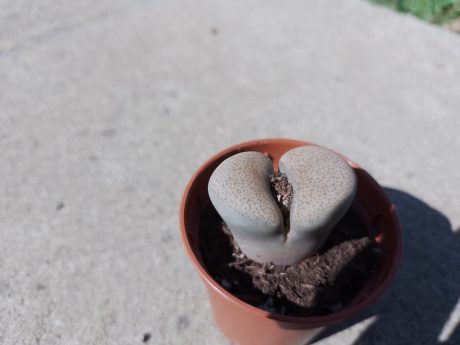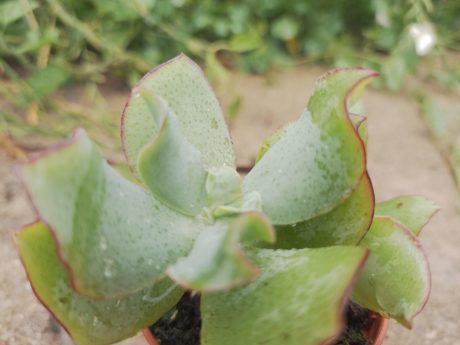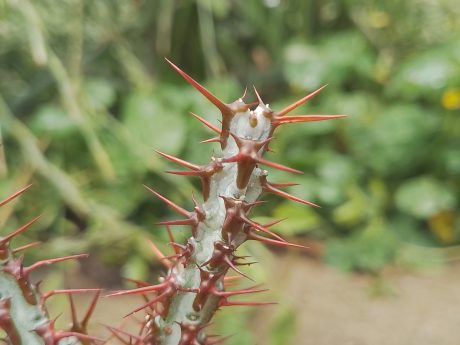The Lithops Pseudotruncatella, or living stone, which is its common name, comes from Africa and is certainly one of the most sought-after succulents for all collectors. It has this common name because it perfectly imitates the stones around it to protect itself from predators. Almost nothing grows, it can be about one to five centimeters high.
It’s one of the most curious plants I’ve ever seen, because we can see that it’s being transformed so to speak, apart from growing to develop its flower as well. Before it does not flourish, it suffers as I have said three transformations, which consist of: Through the slit you can see in the photo, it opens up completely vertically, and just in the center is a new specimen. As the nut grows, the old (to put it in some way) becomes organic matter. When this process is finished, the center of the last outbreak features a considerably large, yellow or orange flower, very bright and striking to attract insects. When the flower comes out, it is clear that it is completely exposed to its enemies. This process may remind us of the Lithops Aucampiae, or the Pleiospilos Royal Flush, which do exactly the same thing both to grow and to flourish.
Its ideal temperature is between fifteen and thirty-seven positive degrees, but it must be said that the temperature must be very stable. It needs four to five hours of direct sun, then if it has a shadow, it will be fine. It should not be exposed to temperatures below ten positive degrees.
It should not be irrigated, because it is a succulent thing that we could say is caring for itself, because the drying leaves remove all that it needs. Sometimes he does welcome some water, but without going over it, if it could not be fatal for this spectacular specimen.









Reviews
There are no reviews yet.